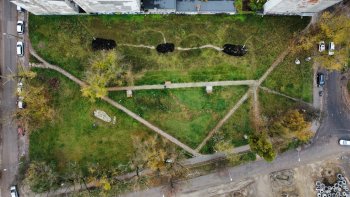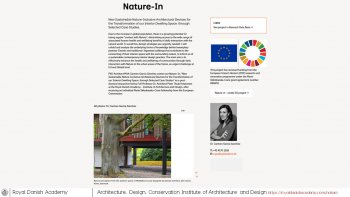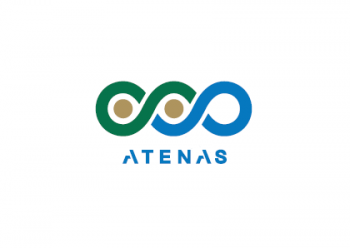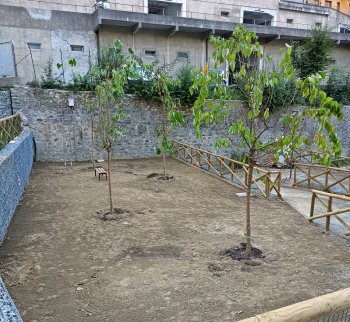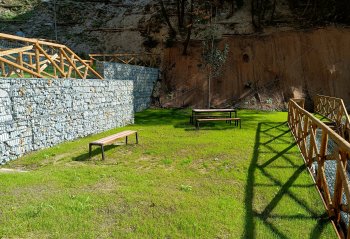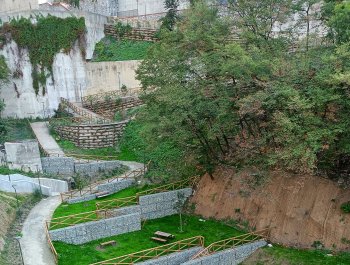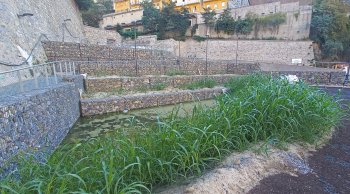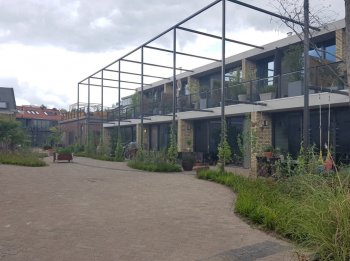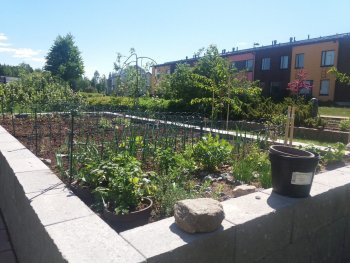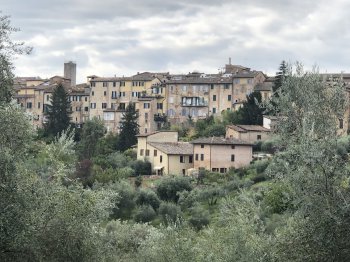Triple infiltration basin and greenery regeneration in the square of Oblęgorska / Widok Street in Łódź (Poland)
An implementation focused on combining blue and green infrastructure, with predominant use of native species and minimizing maintenance effort.
Key aims:
- demonstrate the integration of blue solutions into green design;
- create a pilot implementation of the infiltration basin as an example of best practice and a source of know-how;
- build the trust in NbS;
- initiate the restoration of water cycle in the Łódka River catchment.

